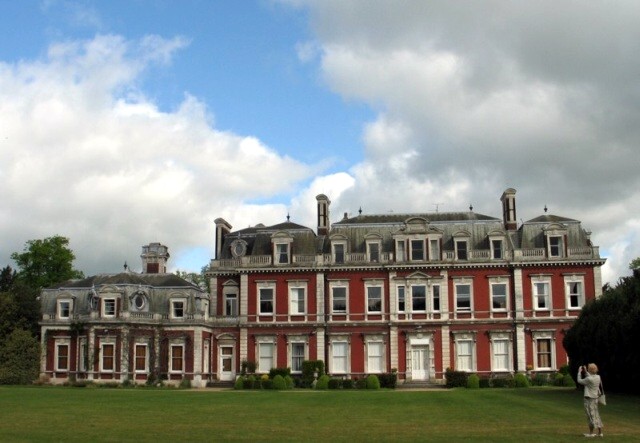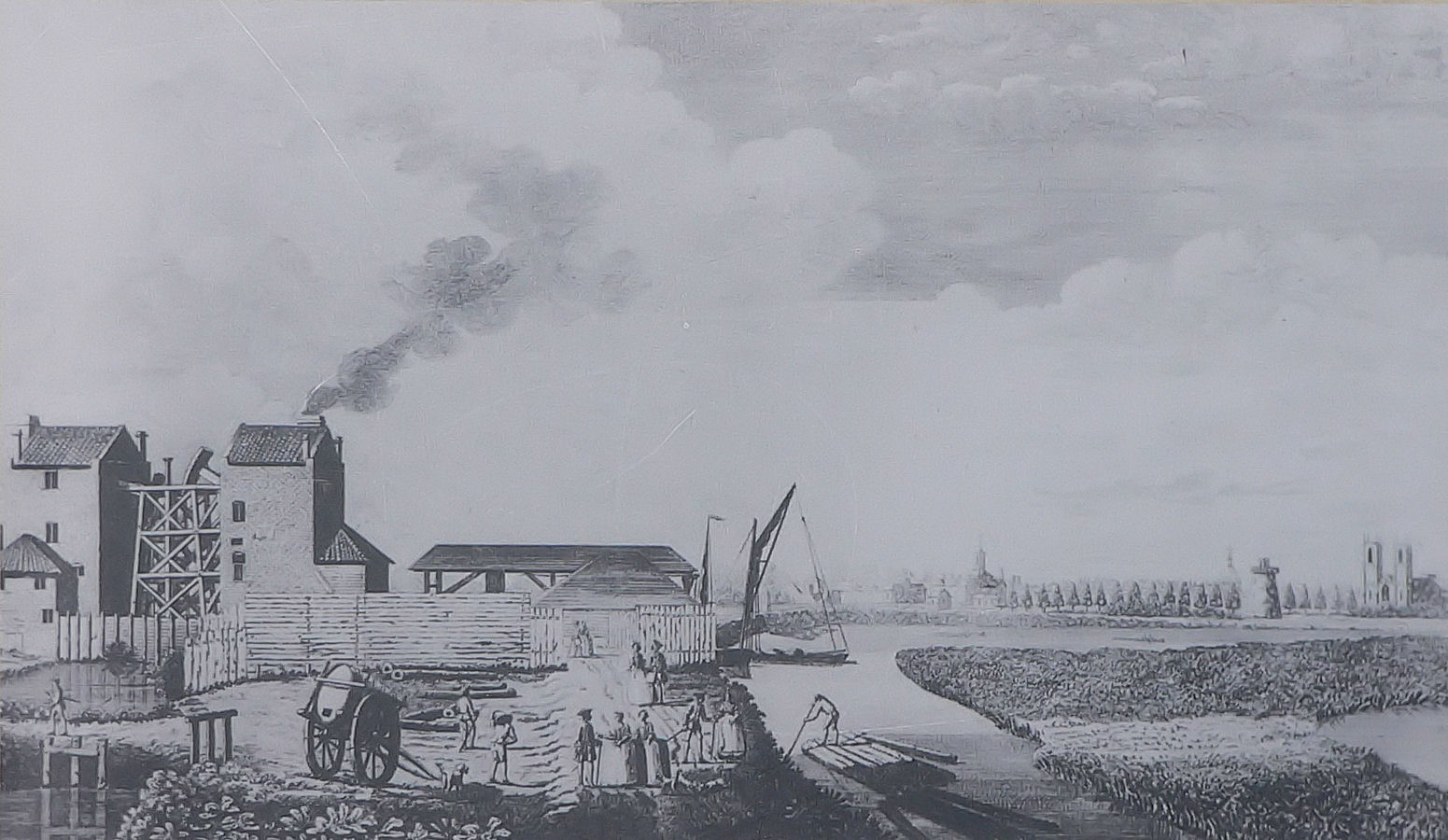|
Christopher Tilson
Christopher Tilson (24 January 1670 – 25 August 1742) of St Margaret's, Westminster and Hampton Poyle, Oxfordshire, was a British Treasury official for over 50 years and a politician who sat in the House of Commons from 1727 to 1734. Tilson was the son of Nathaniel Tilson of London, and grandson of Henry Tilson, Bishop of Elphin in Ireland. He was educated at St Paul's School. In February 1685 he became Clerk of the Treasury, a post he held for the rest of his life. He became Clerk of Commissioner of appeal in the excise at £100 p.a. in April 1693, and Receiver General of crown land revenues in 1699. Before 1706, he married Mary Humble (died 30 August 1737), daughter of George Humble. He acquired the manor of Hampton Poyle in 1723. [...More Info...] [...Related Items...] OR: [Wikipedia] [Google] [Baidu] |
1734 British General Election
The 1734 British general election returned members to serve in the House of Commons of the 8th Parliament of Great Britain to be summoned, after the merger of the Parliament of England and the Parliament of Scotland in 1707. Robert Walpole's increasingly unpopular Whig government lost ground to the Tories and the opposition Whigs, but still had a secure majority in the House of Commons. The Patriot Whigs were joined in opposition by a group of Whig members led by Lord Cobham known as the Cobhamites, or 'Cobham's Cubs'. Summary of the constituencies See 1796 British general election for details. The constituencies used were the same throughout the existence of the Parliament of Great Britain. Dates of election The general election was held between 22 April 1734 and 6 June 1734. At this period elections did not take place at the same time in every constituency. The returning officer in each county or parliamentary borough fixed the precise date (see hustings for details of the co ... [...More Info...] [...Related Items...] OR: [Wikipedia] [Google] [Baidu] |
Civil Servants In HM Treasury
Civil may refer to: *Civic virtue, or civility *Civil action, or lawsuit * Civil affairs *Civil and political rights *Civil disobedience *Civil engineering *Civil (journalism), a platform for independent journalism *Civilian, someone not a member of armed forces *Civil law (other), multiple meanings *Civil liberties *Civil religion *Civil service *Civil society *Civil war A civil war or intrastate war is a war between organized groups within the same state (or country). The aim of one side may be to take control of the country or a region, to achieve independence for a region, or to change government policies ... * Civil (surname) {{disambiguation ... [...More Info...] [...Related Items...] OR: [Wikipedia] [Google] [Baidu] |
1742 Deaths
Year 174 ( CLXXIV) was a common year starting on Friday (link will display the full calendar) of the Julian calendar. At the time, it was known as the Year of the Consulship of Gallus and Flaccus (or, less frequently, year 927 ''Ab urbe condita''). The denomination 174 for this year has been used since the early medieval period, when the Anno Domini calendar era became the prevalent method in Europe for naming years. Events By place Roman Empire * Empress Faustina the Younger accompanies her husband, Marcus Aurelius, on various military campaigns and enjoys the love of the Roman soldiers. Aurelius gives her the title of ''Mater Castrorum'' ("Mother of the Camp"). * Marcus Aurelius officially confers the title ''Fulminata'' ("Thundering") to the Legio XII Fulminata. Asia * Reign in India of Yajnashri Satakarni, Satavahana king of the Andhra. He extends his empire from the center to the north of India. By topic Art and Science * ''Meditations'' by Marcus Aurelius is ... [...More Info...] [...Related Items...] OR: [Wikipedia] [Google] [Baidu] |
1670 Births
Year 167 ( CLXVII) was a common year starting on Wednesday (link will display the full calendar) of the Julian calendar. At the time, it was known as the Year of the Consulship of Aurelius and Quadratus (or, less frequently, year 920 ''Ab urbe condita''). The denomination 167 for this year has been used since the early medieval period, when the Anno Domini calendar era became the prevalent method in Europe for naming years. Events By place Roman Empire * Lucius Aurelius Verus Augustus and Marcus Ummidius Quadratus Annianus become Roman Consuls. * The Marcomanni tribe wages war against the Romans at Aquileia. They destroy aqueducts and irrigation conduits. Marcus Aurelius repels the invaders, ending the Pax Romana (Roman Peace) that has kept the Roman Empire free of conflict since the days of Emperor Augustus. * The Vandals (Astingi and Lacringi) and the Sarmatian Iazyges invade Dacia. To counter them, Legio V ''Macedonica'', returning from the Parthian War, moves its ... [...More Info...] [...Related Items...] OR: [Wikipedia] [Google] [Baidu] |
Members Of Parliament For Cricklade
Member may refer to: * Military jury, referred to as "Members" in military jargon * Element (mathematics), an object that belongs to a mathematical set * In object-oriented programming, a member of a class ** Field (computer science), entries in a database ** Member variable, a variable that is associated with a specific object * Limb (anatomy), an appendage of the human or animal body ** Euphemism for penis * Structural component of a truss, connected by nodes * User (computing), a person making use of a computing service, especially on the Internet * Member (geology), a component of a geological formation * Member of parliament * The Members, a British punk rock band * Meronymy, a semantic relationship in linguistics * Church membership, belonging to a local Christian congregation, a Christian denomination and the universal Church * Member, a participant in a club or learned society A learned society (; also learned academy, scholarly society, or academic association) is an ... [...More Info...] [...Related Items...] OR: [Wikipedia] [Google] [Baidu] |
William Gore (died 1739)
William Gore (c. 1675–1739) of Tring Park, Hertfordshire, was a British financier and Tory politician who sat in the House of Commons between 1711 and 1739 . Gore was the eldest son of Sir William Gore, Lord Mayor of London and his wife, Elizabeth Hampton. He was admitted at Queens' College, Cambridge in 1691. In 1708, he succeeded his father to Tring Park. He married Lady Mary Compton, daughter of George Compton, 4th Earl of Northampton in April 1709. Gore was a Director of the Bank of England from 1709 to 1712, and a Director of the South Sea Company from 1712 to 1715. He was a Tory and a member of the October Club and stood for Parliament at Colchester at the 1710 general election. He was initially defeated in the poll, but was seated on petition as Member of Parliament for Colchester on 27 January 1711. After the 1713 general election, he was again seated on petition on 6 May 1714. He did not stand in 1715. In 1718, Gore bought the manor of Cricklade, which allowed him ... [...More Info...] [...Related Items...] OR: [Wikipedia] [Google] [Baidu] |
Thomas Gore (MP)
Thomas Gore (c. 1694–1777) of Dunstan Park, Berkshire, was a British politician who sat in the British House of Commons, House of Commons between 1722 and 1768. Early life Gore was the third son of William Gore (Lord Mayor of London), Sir William Gore Lord Mayor of London and his wife, Elizabeth Hampton. He was admitted at Inner Temple in 1711, and matriculated at Christ Church, Oxford on 4 June 1714, aged 19. He married Mary Humfreys, twice-widowed daughter of Sir William Humfreys, 1st Baronet of London on 15 September 1748. Her former husbands were William Ball Waring, and John Honywood. Career Gore stood for Parliament at Cricklade (UK Parliament constituency), Cricklade at a by-election in 1721 when he was unsuccessful, but was returned as Tory Member of Parliament for Cricklade on the interest of his elder brother, William, at the 1722 British general election, 1722 general election. He lost his seat at Cricklade, being defeated at the 1727 British general election, 17 ... [...More Info...] [...Related Items...] OR: [Wikipedia] [Google] [Baidu] |
Sir Thomas Reade, 4th Baronet
Sir Thomas Reade, 4th Baronet, (c.1684 - 1752) of Shipton Court, Oxfordshire was a British courtier and Whig politician who sat in the House of Commons for 34 years from 1713 to 1747. Reade was the second son of Sir Edward Reade, 2nd Baronet, of Shipton Court, and his wife Elizabeth Harby, daughter of Edward Harby of Adstone, Northamptonshire. He was the elder brother of Lieutenant-general George Reade. He succeeded to the baronetcy and Shipton Court on the death of his elder brother, Sir Winwood Reade, 3rd Baronet, on 30 June 1692. He married Jane Mary Dutton, the daughter of Sir Ralph Dutton, 1st Baronet, MP of Sherborne, Gloucestershire, on 29 October 1719. Reade first stood for Parliament at a by-election for Oxfordshire in February 1710 and was heavily defeated. At the 1713 general election, he was elected Member of Parliament for Cricklade. Reade was returned unopposed at Cricklade at the 1715 general election, but faced contests at the succeeding general elections ... [...More Info...] [...Related Items...] OR: [Wikipedia] [Google] [Baidu] |
Chelsea Waterworks Company
The Chelsea Waterworks Company was a London waterworks company founded in 1723 which supplied water to many central London locations throughout the 18th and 19th centuries until its functions were taken over by the Metropolitan Water Board in 1904. The company was established "for the better supplying the City and Liberties of Westminster and parts adjacent with water" ''The London Encyclopaedia'', Ben Weinreb & Christopher Hibbert, Macmillan, 1995, and received a Royal Charter on 8 March 1723. The company created extensive ponds in the area bordering Chelsea and Pimlico using water from the tidal Thames. These were to form the basis of the Grosvenor Canal which was opened to traffic in 1825. By the 19th century there were complaints about the quality of the water they were drawing from the River Thames, and in 1829, under engineer James Simpson the company became the first in the country to install a slow sand filtration system to purify the water. The Metropolis Water Ac ... [...More Info...] [...Related Items...] OR: [Wikipedia] [Google] [Baidu] |
Cricklade (UK Parliament Constituency)
Cricklade was a parliamentary constituency named after the town of Cricklade in Wiltshire. From 1295 until the general election of 1885, Cricklade was a parliamentary borough, returning two members of parliament (MPs) to the House of Commons of the Parliament of the United Kingdom, previously to the House of Commons of England. Initially this consisted of only the town of Cricklade, but from 1782 the vote was extended to the surrounding countryside as a punishment for the borough's corruption. The extended area came to include the village of Swindon, which later grew into a large town with the coming of the railways in the 19th century. From the 1885 general election the borough was abolished, but the name was transferred to a county division of Wiltshire covering much the same area, and electing a single MP. This constituency was abolished for the 1918 general election: Cricklade joined the Chippenham constituency and a new Swindon constituency was created. Boundar ... [...More Info...] [...Related Items...] OR: [Wikipedia] [Google] [Baidu] |




.jpg)